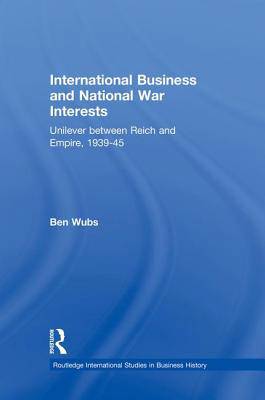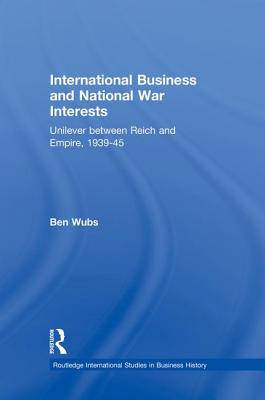
- Afhalen na 1 uur in een winkel met voorraad
- Gratis thuislevering in België vanaf € 30
- Ruim aanbod met 7 miljoen producten
- Afhalen na 1 uur in een winkel met voorraad
- Gratis thuislevering in België vanaf € 30
- Ruim aanbod met 7 miljoen producten
International Business and National War Interests
Unilever Between Reich and Empire, 1939-45
Ben WubsOmschrijving
This book deals with the activities of the Anglo-Dutch multinational during the war. Given the various threats faced by Unilever during the Nazi period, Ben Wubs argues that it was not self evident that the company would survive the war. Based on research into company sources which were hitherto unavailable, he shows the effect of the war on Unilever as well as the changing conditions in the European food, oil and fats and soap industries.
Wubs makes an analysis of the company's strategy, structure and performance in this period. Simultaneously, it explores the external conditions, which helped the company to survive the war. The author argues that Unilever survived World War II because the group had prepared itself legally well in advance. As a consequence, the company could easily be split in two autonomous parts. Unilever's highly decentralized operating structure helped the company to survive the ambitious of the Nazi State. The deteriorating war conditions for Nazi Germany eventually worked to the advantage of the company. Besides, Unilever's innovative attitude helped the company to adapt to completely new conditions of resource allocation.
Specificaties
Betrokkenen
- Auteur(s):
- Uitgeverij:
Inhoud
- Aantal bladzijden:
- 272
- Taal:
- Engels
- Reeks:
Eigenschappen
- Productcode (EAN):
- 9781138864047
- Verschijningsdatum:
- 4/03/2015
- Uitvoering:
- Paperback
- Formaat:
- Trade paperback (VS)
- Afmetingen:
- 156 mm x 234 mm
- Gewicht:
- 385 g

Alleen bij Standaard Boekhandel
Beoordelingen
We publiceren alleen reviews die voldoen aan de voorwaarden voor reviews. Bekijk onze voorwaarden voor reviews.











